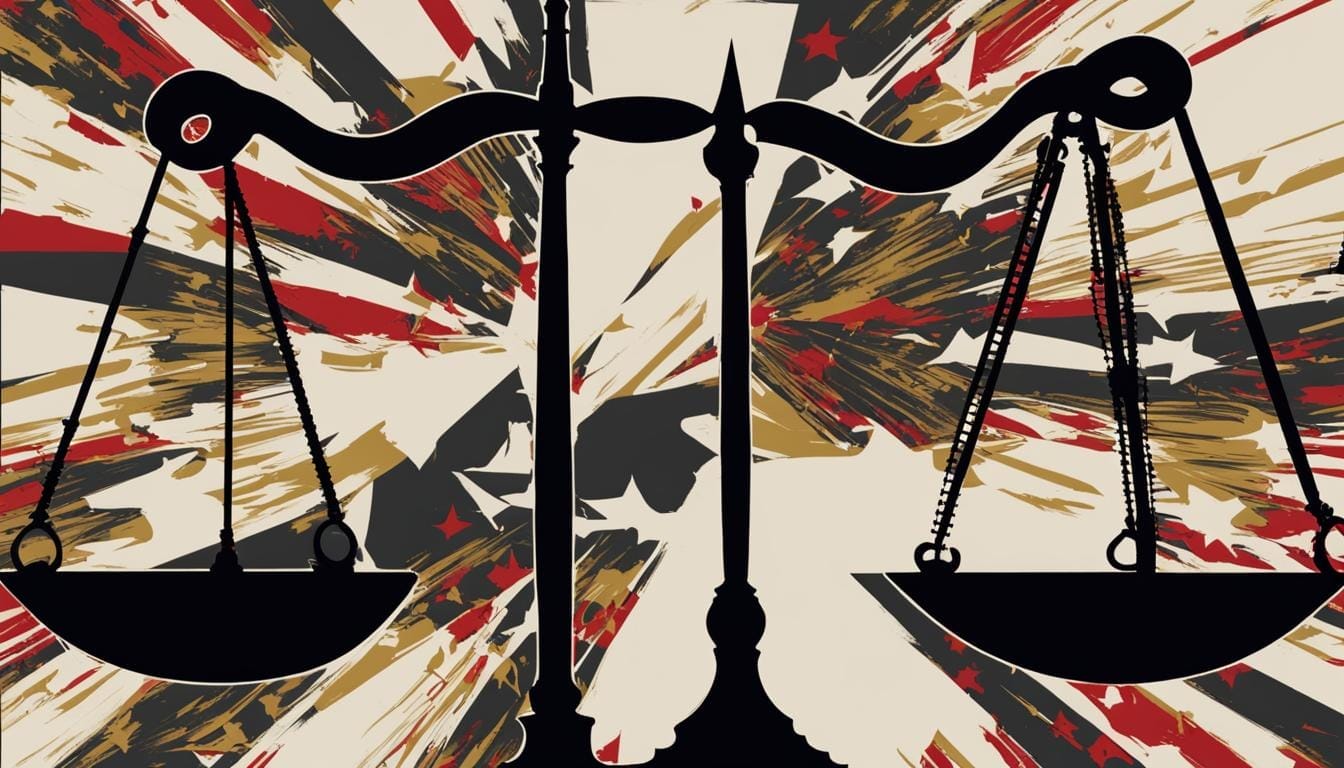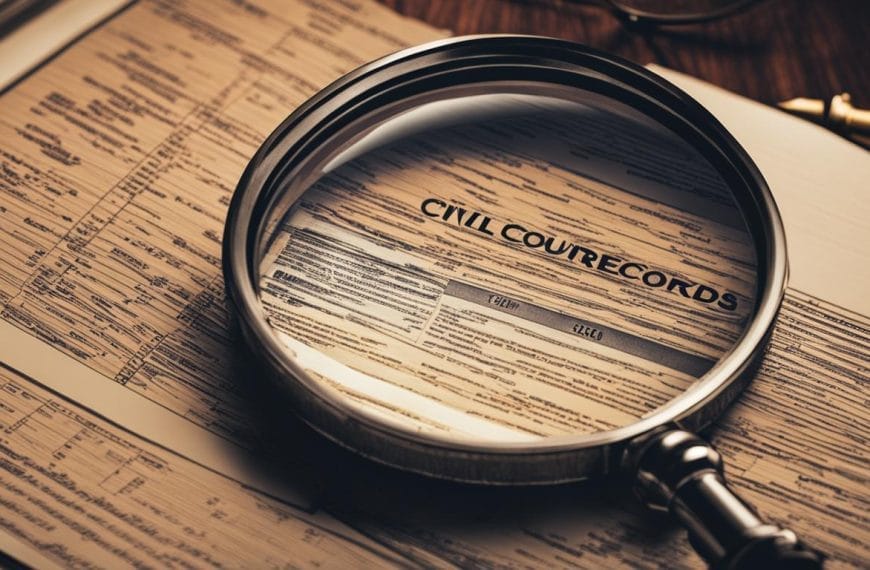In the legal world, civil cases are a common occurrence. These are legal disputes that are not crimes and are handled by civil courts. Understanding the different types of civil cases can be beneficial, especially if you find yourself in a legal situation. In this article, we will explore two of the most popular civil case types: personal injury cases and breach of contract cases.
Personal injury cases are one of the most commonly filed types of civil lawsuits. These cases arise when an individual claims to have been harmed by the actions (negligence or intentional) of another person or entity. Examples of personal injury cases include car accidents, slip and fall accidents, and medical malpractice.
Breach of contract cases, on the other hand, involve a party failing to fulfill the terms of a contract. This can include not paying for goods or services, not completing a job as agreed upon, or failing to deliver goods as promised.
As you can see, personal injury cases and breach of contract cases are popular types of civil lawsuits. In the following sections, we will dive deeper into each of these case types, exploring their key elements, considerations, and how they are handled in civil courts.
Personal Injury Cases
Personal injury cases are a common type of civil litigation. They involve someone being injured due to another person’s negligence or intentional actions. Examples of personal injury cases include car accidents, slip and fall accidents, and medical malpractice. In these cases, the injured party (plaintiff) seeks compensation for their injuries, including medical expenses, lost wages, and pain and suffering.
Personal injury cases can have a significant impact on the lives of those involved. They can result in physical injuries, emotional trauma, and financial burdens. Seeking legal recourse through civil lawsuits is often necessary to hold the responsible party accountable and obtain the compensation deserved.
In personal injury cases, the burden of proof is on the plaintiff to show that the defendant’s negligence or intentional actions directly caused their injuries. This can require gathering evidence, including medical records, accident reports, and witness statements, to support the claim.
Types of Personal Injury Cases
Personal injury cases can arise from various incidents and circumstances. Here are some common types of personal injury cases:
- Car accidents: When someone is injured in a motor vehicle collision caused by another driver’s negligence or reckless behavior.
- Slip and fall accidents: When someone is injured due to dangerous conditions on someone else’s property, such as wet floors or poorly maintained walkways.
- Medical malpractice: When a healthcare professional’s negligent or substandard care leads to harm or injury to a patient.
- Product liability: When a defective or dangerous product causes injury or harm to a consumer.
- Workplace accidents: When an employee is injured on the job due to the negligence of their employer or a third party.
Personal injury cases can be complex, requiring legal expertise to navigate the civil court system and effectively present the case. Hiring a skilled personal injury attorney can help maximize the chances of a successful outcome.
Breach of Contract Cases
In civil litigation, breach of contract cases are a common occurrence when one party fails to fulfill their obligations under a legally binding agreement. A breach of contract can take various forms, such as:
- Failing to pay for goods or services
- Not completing a job as agreed upon
- Not delivering goods as promised
In such instances, the injured party, known as the plaintiff, has the right to seek compensation for any financial losses or damages incurred as a direct result of the breach. This may involve taking legal action through civil lawsuits in a civil court.
Civil Court Process
When it comes to civil litigation, understanding the civil court process is essential. It involves several steps that ensure a fair resolution for all parties involved. Let’s take a closer look at how the civil court process works.
Filing an Official Complaint
The civil court process begins with the plaintiff filing an official complaint with the appropriate civil court. This complaint outlines the details of the incident, identifies the responsible party (defendant), and requests a specific remedy. The complaint sets the stage for the entire case.
Responding to the Complaint
Once the complaint is filed, the defendant has the opportunity to respond with a formal answer. This answer addresses the allegations made in the complaint and can include defenses or counterclaims. It is crucial for the defendant to provide a timely and comprehensive response.
Pre-Trial Process
After the initial filings, many civil cases go through a pre-trial process. This stage involves gathering information through discovery, where both parties exchange relevant documents and evidence. Witnesses may be interviewed, and expert opinions might be sought. The pre-trial process allows each side to evaluate the strength of their case and potentially reach a settlement.
In some cases, mediation or arbitration may be pursued during the pre-trial phase. These alternative dispute resolution methods aim to facilitate a settlement without going to trial. If an agreement is reached, the case can be resolved efficiently, saving time and money for all parties involved.
The Trial and Verdict
If a case does not settle through mediation or arbitration, it will proceed to trial. During the trial, both parties present evidence, call witnesses, and make arguments before a judge or jury. The judge or jury then assesses the evidence and reaches a verdict.
Civil Lawsuits Infographic:
For a visual representation of the civil court process, check out this infographic:
| Step | Description |
|---|---|
| 1 | Filing an Official Complaint |
| 2 | Responding to the Complaint |
| 3 | Pre-Trial Process |
| 4 | The Trial and Verdict |
Understanding the civil court process is crucial for anyone involved in civil lawsuits. It ensures transparency, fairness, and the opportunity for a satisfactory resolution. Whether it’s filing a complaint, going through pre-trial procedures, or presenting evidence at trial, each step plays a vital role in the pursuit of justice.
Differences Between Civil and Criminal Court
When it comes to legal matters, it’s essential to understand the differences between civil court and criminal court. Although both types of court handle legal disputes, they have distinct characteristics and serve different purposes.
Civil Court
In civil court, cases involve disputes between two parties seeking compensation or resolution. These disputes can arise from various circumstances, such as a breach of contract, personal injury, property disputes, or family matters. The primary goal of civil court is to provide a fair resolution for the parties involved.
Civil cases can be decided by either a judge or a jury, depending on the complexity and the parties’ preference. The burden of proof in civil court is typically less stringent than in criminal court. To win a civil case, the plaintiff must demonstrate a “preponderance of the evidence,” meaning it is more likely than not that the defendant is responsible for the wrongdoing or breach.
Criminal Court
In contrast, criminal court deals with cases involving individuals accused of breaking laws. These cases are initiated by the government and typically involve crimes such as theft, assault, murder, or drug offenses. The objective of criminal court is to determine whether the accused is guilty or not guilty of the charges beyond a reasonable doubt.
In criminal court, the accused has the right to a jury trial in which the jury must unanimously agree on their guilt or innocence. The burden of proof lies with the prosecution, who must present strong evidence to convince the jury of the defendant’s guilt beyond a reasonable doubt.
The following table summarizes the key differences between civil court and criminal court:
| Civil Court | Criminal Court |
|---|---|
| Disputes between parties seeking compensation or resolution | Prosecution of individuals accused of breaking laws |
| Decided by judge or jury | Always involves a jury trial |
| Proof required: preponderance of the evidence | Proof required: beyond a reasonable doubt |
Understanding the distinctions between civil court and criminal court is crucial when navigating the legal system. Whether you find yourself involved in a civil or criminal case, it’s essential to consult with an attorney who specializes in the respective area to ensure your rights are protected.
Types of Verdicts and Judgments in Civil Cases
In civil cases, there are two types of verdicts that can be rendered. A judge or jury can require a party to pay monetary damages or require compliance with a court order.
Monetary damages may compensate the plaintiff for their losses, while court orders may require a party to take or refrain from certain actions.
Unlike criminal cases, civil cases do not typically result in imprisonment or fines to the state.
| Type of Verdict | Description |
|---|---|
| Monetary Damages | Compensation awarded to the plaintiff to cover financial losses, including medical expenses, lost wages, and pain and suffering. |
| Court Orders | Mandates issued by the court that require a party to fulfill specific obligations or refrain from certain actions. |
Conclusion
Civil cases encompass a wide array of legal disputes that do not involve criminal charges. Within civil litigation, personal injury cases and breach of contract cases are among the most popular types. Personal injury cases involve harm caused by negligence or intentional actions, while breach of contract cases revolve around parties failing to fulfill their contractual obligations.
Understanding these common civil case types can provide valuable insights into the prevailing trends in civil litigation. Personal injury cases address situations where individuals seek compensation for injuries resulting from another party’s actions. Breach of contract cases, on the other hand, focus on resolving disputes arising from contractual agreements.
By delving into the details and intricacies of civil cases, individuals can navigate the legal landscape more effectively when faced with potential civil litigation. Increased awareness of these popular civil case types – personal injury and breach of contract cases – can assist parties involved in such disputes to better understand their rights and legal options, ultimately aiding them in pursuing fair resolutions.













